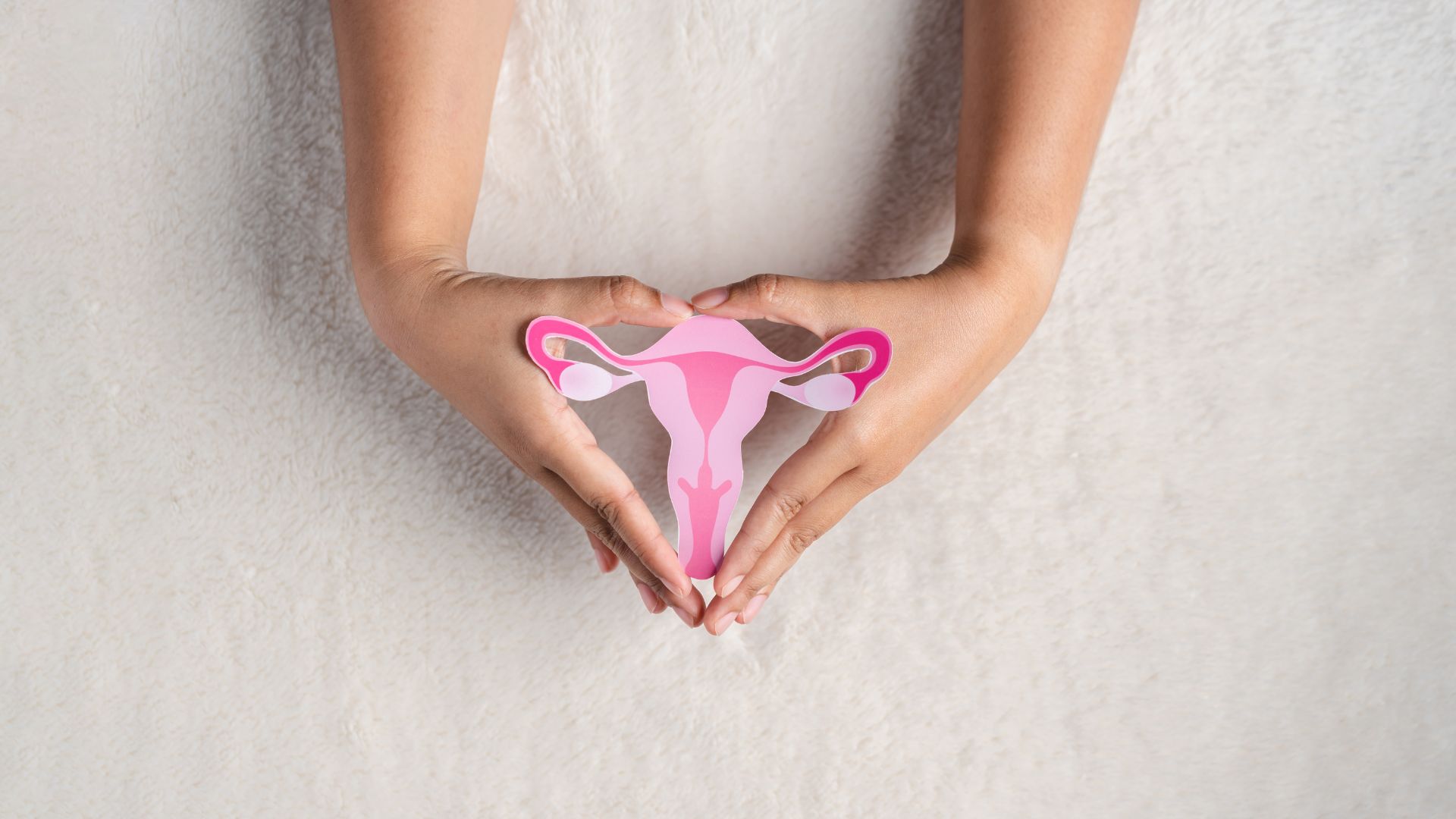I sat in front of the computer trying to come up with the most comprehensive title for this piece. I came up with ideas such as “Hot Flashes & Flashbacks: The Comedy-Horror Duo of Menopause and PTSD,” or When Hormones Meet Horror: The Unholy Matrimony of Menopause and PTSD,” and “Mood Swings & Memory Lapses: The ‘Why Me?’ Guide to Menopause and PTSD.” But the reality is that there is not single title that could encompass the crude reality of a middle aged woman having to deal with both lingering symptoms of PTSD at the same time as the horrors of menopause. So, here we go…
If you are you a woman of a certain age, and by “certain” I mean the age when your body decides to throw a hormonal temper tantrum and call it menopause. Ah, yes, the “Golden Years.” Now let’s sprinkle a bit of PTSD on that cake while we’re at it, shall we? Well, if this fits your category, then here is some information that you didn’t know you needed—but trust me, you do.
Within each section, I have also included real life examples (without real names) of amazing ladies who have have generously shared their experiences. These ladies have connected with me because they are either registered to my blog, connected through my Medium page, purchased my books or the online PTSD guide, or are my clients through my DianaHelps.com web and small business’ services. They are my heroes.

The Double Whammy: PTSD and Menopause
If you thought menopause was the universe’s idea of a cruel joke, think again. Because the universe, my friends, has a twisted sense of humor. Menopause is that hormonal temper tantrum I mentioned earlier, but PTSD? That’s the mysterious stranger that crashes the party and turns the drama up to eleven. The blend of the two conditions is like a psychological cocktail that no one in their right mind would order, but here you are, forced to sip it. Menopause alone is chaotic, a hormonal whirlwind that comes storming through your life tossing hot flashes, insomnia, and mood swings your way. PTSD? It’s a Pandora’s box of emotional and psychological turbulence. Now, what happens when you have both? Well, you better buckle up, because the ride is a wild one.
Menopause alone is like a hormonal teen with a driver’s license—scary but manageable. PTSD, on the other hand, is like the never-ending rerun of the worst horror movie you’ve ever seen, playing on a loop in your head, and you are unable to stop thinking about it. Combine the two, and you’ve got the makings of a real-life horror-comedy, minus the comedy. Think “Jaws” meets “Freaky Friday,” or perhaps “Chucky” meets “Sex and the City,” only less fun and without a switch-back-at-midnight option.
Now, meet Karen, a 50-year-old small business owner. She was handling menopause’s ups and downs until a bad car accident triggered PTSD. Now, when she’s in a client meeting, and her body decides to be a human furnace (hot flashes, anyone?), she can’t tell if it’s the menopause or her PTSD reacting to the loud city noises outside or her client’s need to wear his entire cologne bottle. Either way, she’s drenched in sweat while trying to seal a business deal. Have you been there?

Symptomatic Symphony or Symphonic Catastrophe?
Navigating the maze of overlapping symptoms is like trying to solve a Rubik’s Cube blindfolded. Hot flashes? Could be menopause—or maybe it’s the PTSD, triggered by a noise that sounded too much like that past traumatic event. Sleepless nights? Oh, don’t even get me started; I haven’t had a good night sleep in over six months. With menopause, you’re too hot, too cold, and up to pee every 30 minutes. With PTSD, it’s the recurring nightmares or maybe just the general, unidentified dread that decides to pop by at 2 a.m. Mood swings? Who’s to say if it’s the lack of estrogen or the intrusive thoughts? You’re not a hormonal teenager anymore, but you’re acting like one, and you can’t even blame adolescence this time.
Whether is is hot flashes or a PTSD-triggered flush, sleepless nights courtesy of your changing hormones, or is it a night terror featuring your past trauma, managing PTSD and menopause feels more like a guessing game where you’re always the loser. Is it the racing heart because you heard a car backfire or is it that you just spotted another gray hair in the mirror? I mean, it’s like trying to find Waldo in a sea of candy-cane stripes; you never quite know which is wreaking havoc on you today.
Now, meet Sharon, a high school teacher. One night, she wakes up in a cold sweat from a nightmare about a past traumatic event she experienced growing up. The thing is, she was already up three times that night due to hot flashes. Sharon finds herself irritable the next day, snapping at students. Is it menopause, PTSD, or a twisted cocktail of both making her lose her cool? Have you been there?

The 24/7 Gig No One Asked For
Here’s the part where I tell you that managing both PTSD and menopause is a full-time job. But let’s be honest, it’s more like working two full-time jobs, overnight shifts, and weekends included, with no overtime pay, and too many unrequested bathroom breaks. Remember when you could watch a romantic movie without feeling like a balloon ready to burst? No? Neither do I. Now every movie I watch makes me cry.
It’s like being handed an instruction manual for a gadget in a language you don’t understand. You have the tools—you think—but no clue how to use them. You’re dealing with flashbacks in the middle of a board meeting, or maybe you’re trying to remember where you parked your car or even where you left your car keys while you’re also warding off the intrusive thoughts that PTSD so generously bestows upon you.
Managing PTSD alone is a full-time job, but toss menopause into the mix and suddenly you’re juggling chainsaws while riding a unicycle. It’s not just exhausting; it’s a Master’s program in misery, with a minor in “WTF is this happening to me?” Trust me, Netflix binges can’t solve this one.
Now, let’s meet Emily who is a single mother of three, in her late 40s, and a veteran. While helping her kids with homework, she suddenly recalls a traumatic event from her service days. Meanwhile, she’s also forgetting basic math because, thank you, menopause brain fog. She’s irritable, she’s forgetting the Pythagorean theorem, and now she’s got to deal with a flashback? Yep, it’s a 24/7 gig. Have you been there?

Navigating the Bermuda Triangle of Intimacy
Oh, did you think we were done? Honey, we’re just getting to the saucy stuff—intimacy. Yes, let’s talk about what happens when the bedroom becomes a battlefield, shall we? Menopause has this cute little trick where it turns your body into the Sahara Desert, but not in a “fun desert safari” kind of way. I’m talking vaginal dryness that makes you reconsider if tumbleweeds might start appearing down there. Pair that with a libido that’s gone MIA, and you’ve got yourself a dry (no pun intended!) romantic comedy that nobody wants to watch.
Then enters PTSD, your uninvited guest that loves to spice things up—but not in a Fifty Shades of Grey kind of way. Oh no. Think of it more like adding wasabi to your chocolate sundae. Just when you’re trying to reconnect with your partner, your brain decides it’s the perfect time to revisit some of your worst memories. Your body tenses up, your mind races, and you’re left wondering if you’re doomed to a lifetime of no chill.
Real-life example? Picture this: You finally get a kid-free night. You put on that playlist, light those scented candles, and hope to reignite that old spark. Just as things start heating up, you’re hit by a double whammy. Your body feels like it’s made of sandpaper, and your PTSD decides to chime in with a “hey, remember that awful thing that happened to you a decade ago?” So, now you’re physically uncomfortable, emotionally rattled, and mentally out to lunch. Intimacy? More like “into-me-see-all-my-issues.”
You end up watching late-night infomercials instead, debating if you need a new set of non-stick cookware or a magic bullet blender. The night that was supposed to bring you closer ends up feeling like an awkward first date with yourself.

The Solution Starter Pack:
For Vaginal Dryness: You don’t need a miracle; you need a good lubricant. And hey, it comes in flavors too! Try any of these for relief.
For Low Libido: Hormone therapy or even herbal options might bring sexy back. Talk to your doctor; they’ve heard it all. Try these options and see if any help.
For PTSD-Induced Intimacy Issues: Breathing exercises can be your saving grace. Deep, slow breaths can help dial down the panic when your PTSD rears its ugly head. These breathing trainers have been helpful for others, perhaps they work for you as well.
So, the next time you plan a romantic evening, maybe add these to your shopping list—along with wine, lots of wine. Remember, the path to intimacy might be more like a maze, but hey, even mazes have an exit. Cheers to finding yours!
DIY Remedies: Because No One’s Coming to Save You
Okay, I don’t mean to be a complete downer, so here’s the silver lining: There are ways to mitigate this hellish experience. And no, I’m not talking about joining a cult or fleeing to a remote island—although, let’s be honest, we’ve all considered it.
Susan, a 55-year-old writer, has had enough. She finally decided to consult her healthcare providers. For menopause, she took up yoga and started HRT after talking to her doctor. For PTSD, her therapist recommended mindfulness techniques and CBT. Now she’s the most Zen person in her writers’ group, sipping green tea like it’s the elixir of calm. She also hired a nutritionist and her diet’s never been better.
For the Menopause Mayhem:
- Exercise: You’ve heard it before, but get off the couch. Moderate exercise releases those cute little endorphins that can combat mood swings. Here are some amazing and comfortable sneaker choices to help you “get up and get going!”
- Hormone Replacement Therapy (HRT): It’s like sending in the cavalry when you’re losing the battle, but consult your doc because it’s not for everyone.
For the PTSD Palooza:
- Mindfulness and Meditation: Yep, even when it feels like there’s a metal concert going on in your brain, focusing on your breath can turn down the volume. I have found great help in keeping a mindfulness journal, perhaps it will work for you as well.
- Cognitive Behavioral Therapy (CBT): Think of it as Marie Kondo for your thoughts. It won’t spark joy right away, but give it time.
For Both:
- A Balanced Diet: Cut down on sugar and processed foods. Not saying they’re the devil, but they’re like the sidekick—the one who doesn’t get a theme song but causes chaos. Learn a bit about nutrition and the role it plays in mental wellness.
- Professional Help: I’m all for self-sufficiency, but there’s a limit. A good therapist can be a game-changer, like a cheat code for the video game of life.
In a Nutshell
So there you have it. Whether you’re a business owner, a teacher, or a mom doing triple duty, there’s a real-life, not-so-rosy side of juggling menopause and PTSD. But like our example Susan, there are ways to navigate this maze. It requires commitment, professional guidance, and yes, a sense of humor dark enough to appreciate the irony of it all. You might not feel like it, but you’re tougher than this diabolical duo. Keep fighting, keep living, and for heaven’s sake, keep laughing when you can. Because you’re the main act in this circus, and you’ve got this.
Here’s my final wisdom nugget: You’re tougher than you think. You’re dealing with menopause and PTSD and still managing to read this without setting something on fire. Give yourself some credit. Oh, and maybe consider getting a plant. They’re proven to reduce stress, and they rarely talk back. Cheers to navigating the labyrinth that is PTSD and menopause. You’ve got this, even when it doesn’t feel like it.
PTSD and menopause together form the duo we never asked for, like a surprise reunion tour of a band you never liked in the first place. But you’re not a passive audience member; you’re the main act. Seek help, be proactive, and take back the stage. And remember, if you manage to get through a day juggling both these monsters, you’re basically a superhero without a cape. Keep fighting the good fight; you’ve got this, even if it doesn’t feel like it all the time.
